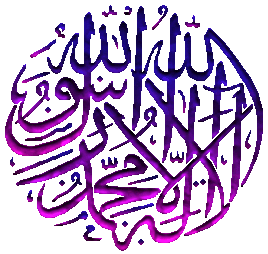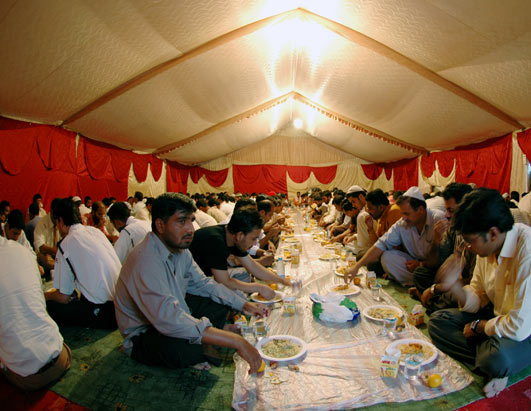Muhammad, the Prophet of the Nations
Muhammad's birth day was in 570 C.E. in the city of Makkah. When Muhammad's father his mother sent him to live with nomads, and he became and orphan. When Muhammad was about 6 years old he went back to the village of his mother. They did not have much time together because she soon died. When his mother died Muhammad was left in his grandfathers hands. But when his grandfather died he went to live with his uncle. When Muhammad was a young boy his uncle took him on one of his trading journeys. Later on Muhammad became a trader who enjoyed a reputation throughout Makkah for his honesty. Many people called him al-Amin, which means "the Trustworthy." When Muhammad was managing caravans for a widow named Khadijah, she proposed marriage to him. He accepted her offer and around the age of 25 he married her. They ended up having several children.
For the next 15 years Muhammad continued his job as a successful trader. In 610 C.E. something happened that changed his life forever. He was a very devoted person and one day when he was praying in a cave, Gabriel came to him. Gabriel told him that he is the messenger of God. Muhammad asked Gabriel what he was to recite, and Gabriel said:
Recite- in the name of thy Lord!
Who created man from blood coagulated
Recite! Thy Lord is wondrous kind
Who by the pen has taught mankind
Things they knew not.
Muhammad left the cave shaking with fear. Gabriel came to him and said "You are the messenger of God." He went home and told his wife. At first Muhammad thought he was going mad, but his wife consoled Muhammad and expressed her faith that God had chosen him as a prophet to communicate his words to other people. Khadijah became the first to convert to Islam. It is based on monotheism, or the belief in one God. Though Muhammad could not read or write, he said that the messages he got from God were imprinted in his heart and mind. Muhammad's followers also memorized them and some of them wrote them down in a book called the Qur'an, the holy book of Islam. Muhammad taught that all people must worship one God, that all believers in God were equal, and that the rich should share their wealth. To prevent the spread of the messages, many Arabs called Muhammad a liar. Some Arabs also tortured some of Muhammad's weaker followers. Despite this the Muslims would also not give up there faith.
The Five Pillars of Faith
The first Pillar of Faith is Shahadah, the declaration of faith. To show belief in one God and in Muhammad a Muslim must say, "There is no god but God, and Muhammad is the messenger of God." (This is Arabic for "There is no god but God, and Muhammad is the messenger of God.")


The third Pillar of Faith is Zakat, or almsgiving. Muslims must give a certain amount of money to poorer people. They believe that when you give away some of your money, you become pure instead of greedy.

The fourth Pillar of Faith is Siyam, or fasting. The Muslims cannot eat food during the day when the sun is out. They have to fast for an entire month during Ramandan, the ninth month of the Islamic calendar.

The fifth Pillar of Faith is Hajj, the pilgrimage. The Muslims come here and circle around it seven times. They do this because htye are following the footsteps of Abraham and Muhammad.

The Qur'an
The Qur'an contains messages that Muhammad is believed to have received from the angle Gabriel. Through the Qur'an God tells about his laws and moral teachings, or the "straight path." This book holds a central position for all Muslims, guiding them in all aspects of their lives. The Sunnah is the example that Muhammad set for all Muslims during his life. To Muslims Sunnah is seocnd to the Qur'an. The Qur'an is related to the Five Pillars because it provides genral commands to perform these five duties. The Sunnah explains how to perform them usinf Muhammad's example. The body, or collection, of Islamic law is called shari'ah, the "path to be followed." It is based on the Qur'an and the Sunnah.